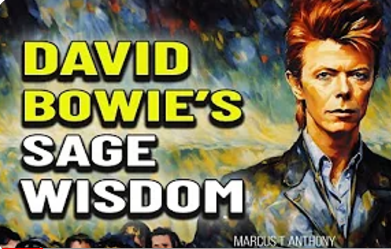TED’s decision to remove public talks by Rupert Sheldrake and Graham Hancock from YouTube and the main section of their web site has created quite a furore. To date there has been well over 1000 supportive comments posted on TED’s discussion pages. The latest page opened regarding the topic on the TED site is here. TED initially made quite a mess of the entire process. The first announcement they released was incredibly sloppy, and almost all the statements they made about the content of the two videos was inaccurate. It looked like the writer had either not watched the videos, or merely skimmed them.
Sheldrake’s video was a philosophy of science talk, where he put forward ten questions about significant problem areas in science which he suggests require further investigation. These included whether telepathy exists, whether the laws of nature are fixed, and whether memories are really found in the substrate of brains. Hancock’s talk was about his experience of using the drug ayahuasca to expand his understanding of consciousness.
To their credit, TED has allowed open discussion of the issue. The criticism has been intense, both on their site and across the blogosphere. This has clearly spooked the organisation. If my understanding is correct, TED is going to restore the videos to the main section of the site. I am not sure whether they will restore them to YouTube. I have engaged in the discussions myself, and joked that my TEDx talk about consciousness and the future might be taken down from YouTube if I wasn’t careful. It hasn’t been.
Many fans of Hancock in particular have been very angry about what happened. This is perfectly understandable. However this is not my attitude to the problem. I foresee a time when we leave behind the crude process of creating confrontational binaries and attacking others who disagree with us. Shaming and cursing others rarely shifts perspectives. It just isn’t a smart way to initiate a discourse with another. I prefer to engage others, even when they hold a contrary position. This is one of the great advantages of having done a lot of inner work, and becoming more “mindful”. I find it difficult to take other people’s behaviour personally, including criticism and personal attacks.
I see this TED saga as a tremendous opportunity for progress in the understanding of consciousness.
The obvious reason is that it has generated a great deal of publicity for Sheldrake and Hancock. That is the obvious benefit.
However the greater positive, if I can use such a term, is that the sage has simply indicated beyond reasonable doubt that Sheldrake’s and Hancock’s criticisms about the way science is conducted are correct. Let’s be clear. TED is not a body of scientists, so its actions cannot be extrapolated to represent the greater scientific community. Nonetheless, it does have a science advisory group, as TED has made clear. It is this group which has decided to censure these two talks, under pressure from committed skeptics Jerry Coyne and PZ Meyer – the two men who made the original outraged protests to TED, demanding that the talks be taken down. Yet the fact that a group of hardcore skeptics can hold such a sway over a powerful dispenser of knowledge like TED suggests that conservative, materialistic science still holds an hypnotic sway in many mainstream circles. TED is clearly concerned about the powerful political and business groups that it is affiliated with. These in turn tend to be connected to conservative political and scientific thinking. TED reportedly brings in 16 million dollars from the seated audience for every main TED function (if we can believe the rather angry Eddie Huang). Attendees pay eight thousand a head to have the privilege to mix with the rich and powerful. TED appears to be sensitive to offending its sponsors, and those supporters with money and power.
The massive backlash against TED indicates something else of great importance. People are getting smarter (not more stupid, as the skeptics would like to have us believe). Psychologist Stephen Flynn is famous for identifying the fact that specific realms of human intelligence have been expanding dramatically in the last 70 years or so, as indicated by IQ test scores. In particular we are much better at visual-spatial intelligence and scientific thinking (especially the capacity for abstraction). Flynn believes that people today have been made smarter because of the dissemination of such “scientific thinking”. In turn the widespread dissemination of “shorthand abstractions” such as “random sample”, “control group” and “falsifiability” equip us with cognitive tools which make us smarter. Flynn is quick to criticise what he believes are false shorthand abstractions. He uses examples like “reality is a text” and “gender science”, and he is rather hostile to postmodern thought which attempts to contextualise knowledge formation. While some of Flynn’s criticisms of the abuse of postmodern thought and its sometimes relativism has merit (political correctness can be annoying), his attitude highlights an issue at the heart of “the psi wars”. Conservative thinking in science wants us to accept the benefits of science and the great knowledge it has granted us. But many in the scientific community fail to grasp that the general public, especially those educated in the “leftist” ideologies that emerged from the 1960s, are now armed with a host of concepts akin to Flynn’s short-hand abstractions which make them far smarter than their parents. The very concepts of “worldview”‘, “paradigm” and “ways of knowing”, for example, mean that masses of people are now able to pry behind the machinations of science to ask deeper questions about how our knowledge is produced and communicated. Sheldrake and Hancock, and their army of supporters (as well as a huge number of people looking on from the outside) are just too informed to buy what they are being sold by TED and experts in the scientific community without questioning it.
As Einstein once famously stated, a mind once expanded by a new idea can never return to its original size. The days of authority figures being able to enforce knowledge claims upon the general populace without expecting them to query their claims are long gone. A little thing called the internet has made sure of that. Some may cringe at the fact that ignorance can also be spread quickly, but that is the price we pay for the democratisation of knowledge.
PS. I also just posted an oped I wrote about this TED issue. I sent it to seven newspapers including The Guardian, New York Times and The Age (Melbourne). I never got a response, which is disappointing given that it took me many hours to put together.
Craig Wheeler has also been covering this topic in depth on his blog.
[twitter name=”marcustanthony1″]
[retweet]
[buzz]
[stumble]
[digg]






6 thoughts on “Censoring the future of knowledge?”
Post your oped to as many newspapers as you can.
Marcus it seems to me a crisis’s arising in science similar to that arising in the media/arts world over copyright and in politics over extending state monitoring and control of society.
Thanks to the emergence of cleverer and cleverer technology those who’re supposed to protect and serve us’re now no longer content to monitor our existences as closely as they like on every conceivable level storing every tiny detail until such time as they can find a use for it they’re now in the process of bypassing the whole judicial process of detection and conviction and evolving algorithms designed to identify potential bad minds and evolve non-attributable anticpatory ad hoc remedies.
Similarly artists like Bono and JK Rowling who during their youth quite happily learned their trades by freely acquainting themselves with the works and ideas of their heroes and predecessors by such means as borrowing and lending cassette copies of their heroes’ albums and books all the time poo-pooing the nonsense this constituted theft now not only use every legal means to pulverise anyone daring to even remotely take advantage of them or theirs but they’re seeking to extend into infinity the copyright of work no less derivative than William Shakespeare’s but of infinitely inferior quality while all the time happily endorsing the development of technology which’ll ultimately mean books’ll no longer be readable or music playable unless you happen to have DNA identical to the original purchaser and even then useage’ll be limited to a fixed period of time.
Under such a regime Bono and JK Rowling themselves’d never be capable of emerging never mind truly talented world shaking artists like Shakespeare.
Similarly at a time when technology means as you point out we essentially have both the highest numbered and most sophisticated population in the history of the world there’re those who want to use the endless possibilities of all this new technology to prune back that sophistication by restricting the types of ideas the technology can access even though the sort of ideas they want to excise from Western if not indeed World Civilization’re precisely those that fascinated the minds of individuals like Shakespeare Newton Darwin and Einstein.
And now with the advent of neural interfacing we must be approaching the endgame because if we can get past this need the affluent powerful and influential feel to protect themselves by controlling and restricting what the rest of us’re allowed to think own or do then a truly golden age civilization capable of exponential evolution can emerge.
If we don’t get past this stage a new Borg like hive mind robotic culture’ll emerge instead which’ll ban all independent thought or artistry as mental illness and we won’t have to worry about upsetting the likes of Bono and JK Rowling by infringing their sacred eternal copyrights because theirs’ll be the only stuff legally allowed down our neural interfaces.
alanborky, thanks for your long and considered comment. Hopefully it won’t come down to us becoming the Borg! Information distribution in the age of the internet is quite a complicated issue with many levels to the problem. The internet can be both a means for freeing or enslaving minds. With the TED issue here, it seems to be the interest groups behind the scenes that are pulling most of the strings. Certainly I can’t see any reason to censor Sheldrake’s talk. Hancock’s talk might raise concerns with people about drug abuse, so I can see how people might frame it that way. But it appears there’s no greater reason to ban drugs like ayahuasca than there is to ban alcohol, which so many people use to alter their mood. But Hancock says ayahuasca should not be used recreationally, but as a means to expand insight and develop a deeper understanding of consciousness itself. Of course making such drugs illegal is quite a separate issue from trying to silence those who want to talk about the issue, or share their experience.
Marcus
Pingback: TED, Knowledge, and Power: Implications of the Hancock/Sheldrake Controversy | Conscious Life News
Pingback: TED, knowledge, and power | The GOLDEN RULE
Pingback: Guerrilla War, Unfair (Part 2) |